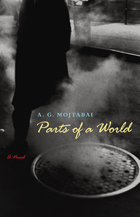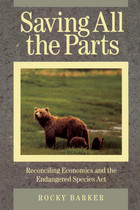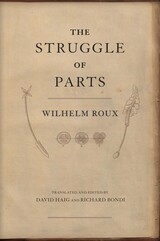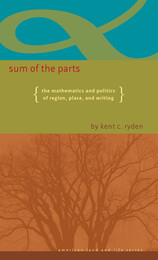
Tom’s life changes when he takes on the case of Michael, who is known as “Saint Francis of the Dumpster” for his peaceful disposition and practice of eating from garbage cans. Tom is at first haunted by, then obsessed with, this uncommunicative young man who holds a precious secret which causes him to risk his survival by living on the street. Tom is determined to discover and expose Michael’s secret (“his faith/his delusion”) as a necessary first step before any treatment can begin. Tom cannot reason his way out of his own obsession when he finds himself bending the rules, abandoning therapeutic norms and, before long, stalking his client. Parts of a World is a book about doubt—doubt, faith, and delusion.

Inductive zoology.
Aristotle, great Greek philosopher, researcher, reasoner, and writer, born at Stagirus in 384 BC, was the son of a physician. He studied under Plato at Athens and taught there (367–347); subsequently he spent three years at the court of a former pupil in Asia Minor. After some time at Mitylene, in 343–342 he was appointed by King Philip of Macedon to be tutor of his teen-aged son Alexander. After Philip’s death in 336, Aristotle became head of his own school (of “Peripatetics”), the Lyceum at Athens. Because of anti-Macedonian feeling there after Alexander’s death in 323, he withdrew to Chalcis in Euboea, where he died in 322.
Nearly all the works Aristotle prepared for publication are lost; the priceless ones extant are lecture-materials, notes, and memoranda (some are spurious). They can be categorized as follows:
I Practical: Nicomachean Ethics; Great Ethics (Magna Moralia); Eudemian Ethics; Politics; Economics (on the good of the family); On Virtues and Vices.
II Logical: Categories; Analytics (Prior and Posterior); Interpretation; Refutations used by Sophists; Topica.
III Physical: Twenty-six works (some suspect) including astronomy, generation and destruction, the senses, memory, sleep, dreams, life, facts about animals, etc.
IV Metaphysics: on being as being.
V Art: Rhetoric and Poetics.
VI Other works including the Constitution of Athens; more works also of doubtful authorship.
VII Fragments of various works such as dialogues on philosophy and literature; and of treatises on rhetoric, politics, and metaphysics.
The Loeb Classical Library edition of Aristotle is in twenty-three volumes.

Saving All the Parts is a journalist's exploration of the intertwining of endangered species protection and the economic future of resource dependent communities -- those with local economies based on fishing, logging, ranching, mining, and other resource intensive industries. Rocky Barker presents an insightful overview of current endangered species controversies and a comprehensive look at the wide-ranging implications of human activities.
The book analyzes trends in natural resource management, land use planning, and economic development that can lead to a future where economic activity can be sustained without the loss of essential natural values. Throughout, Barker provides a thorough and balanced analysis of both the ecological and economic forces that affect the lives and livelihoods of the nation's inhabitants -- both human and animal.

A landmark work of nineteenth-century developmental and evolutionary biology that takes the Darwinian struggle for existence into the organism itself.
Though he is remembered primarily as a pioneer of experimental embryology, Wilhelm Roux was also a groundbreaking evolutionary theorist. Years before his research on chicken and frog embryos cemented his legacy as an experimentalist, Roux endorsed the radical idea that a “struggle for existence” within organisms—between organs, tissues, cells, and even subcellular components—drives individual development.
Convinced that external competition between individuals is inadequate to explain the exquisite functionality of bodily parts, Roux aimed to uncover the mechanistic principles underlying self-organization. The Struggle of Parts was his attempt to provide such a theory. Combining elements of Darwinian selection and Lamarckian inheritance of acquired characteristics, the work advanced a materialist explanation of how “purposiveness” within the organism arises as the body’s components compete for space and nourishment. The result, according to Charles Darwin, was “the most important book on evolution which has appeared for some time.”
Translated into English for the first time by evolutionary biologist David Haig and Richard Bondi, The Struggle of Parts represents an important forgotten chapter in the history of developmental and evolutionary theory.

READERS
Browse our collection.
PUBLISHERS
See BiblioVault's publisher services.
STUDENT SERVICES
Files for college accessibility offices.
UChicago Accessibility Resources
home | accessibility | search | about | contact us
BiblioVault ® 2001 - 2024
The University of Chicago Press









